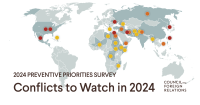In recent times, the involvement of youth in shaping political landscapes has gained considerable attention. Far from being passive observers, young individuals are emerging as powerful catalysts for change, redefining the dynamics of political engagement and influencing the direction of societies worldwide. This blog aims to delve into the multifaceted role of youth in shaping political landscapes, exploring their impact, challenges, and potential avenues for empowerment.

Youth Engagement: Catalysts of Change
Youth engagement in politics goes beyond traditional paradigms. With a fervent drive for social justice, inclusivity, and sustainable change, young individuals are at the forefront of movements that challenge the status quo. Their activism extends across various domains:
1. Activism and Mobilization
Today’s youth are actively involved in grassroots activism, utilizing social media platforms and innovative communication methods to mobilize communities around pressing issues. Movements like climate activism, racial equality, LGBTQ+ rights, and gun control are predominantly spearheaded by passionate young leaders.
2. Political Participation
The youth are increasingly participating in formal political processes, from voting in elections to running for public office. Their diverse perspectives and fresh approaches bring new ideas to the table, reshaping policy agendas and political discourse.
Challenges Faced by Youth in Political Engagement
Despite their enthusiasm and contributions, young individuals encounter several challenges in their quest to shape political landscapes:
1. Structural Barriers
Structural barriers, such as age requirements for running for office or limited access to resources and networks, often hinder youth from fully engaging in political spheres.
2. Skepticism and Marginalization
Skepticism from older generations regarding the capabilities of youth in politics and their marginalization within established political structures can dampen their enthusiasm and limit their influence.
Empowering Youth for Political Impact
1. Education and Civic Engagement
Enhancing civic education in schools and communities is crucial for equipping young individuals with the knowledge and skills necessary for active political participation.
2. Mentorship and Support Networks
Establishing mentorship programs and support networks that connect experienced political figures with aspiring youth leaders can provide guidance and opportunities for growth.
The Impact of Youth Engagement on Political Landscapes
The involvement of youth in shaping political landscapes yields profound impacts:
1. Fresh Perspectives and Innovation
Youth bring fresh perspectives, innovative solutions, and a strong commitment to inclusivity and social justice, fostering more comprehensive and forward-thinking policies.
2. Transforming Political Dynamics
Their involvement disrupts traditional power structures, fostering a more diverse and representative political landscape that resonates with the evolving values of societies.
Conclusion
The role of youth in shaping political landscapes is transformative and indispensable. Their energy, passion, and commitment to change have the potential to redefine political discourse and drive meaningful progress. By overcoming challenges and fostering environments that empower and support young leaders, societies can harness the full potential of youth engagement in shaping a more equitable, inclusive, and responsive political future.







